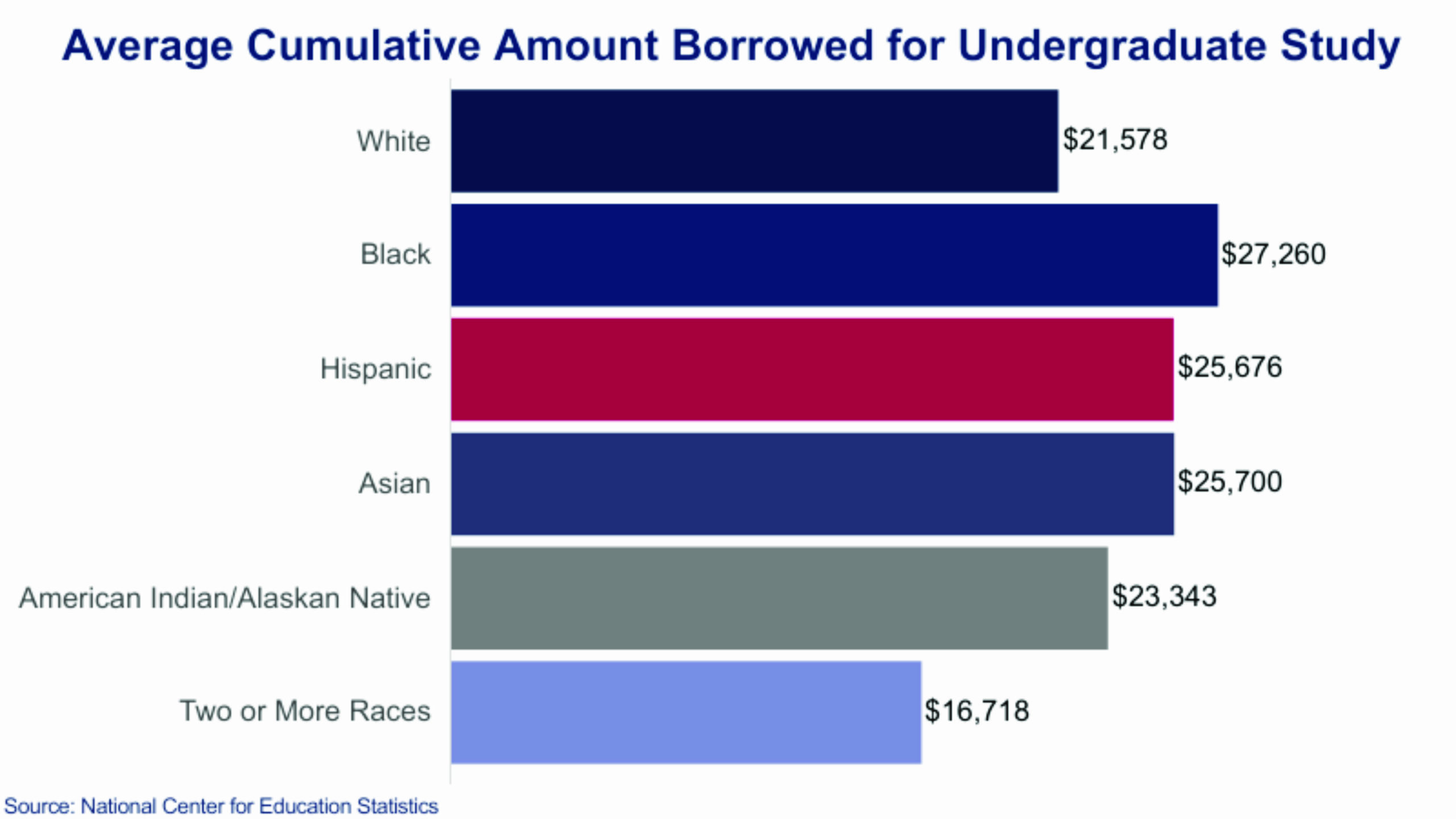The average college-educated Black person owes $25,000 more in student loan debt than white college graduates, according to a report by the Education Data Initiative (EDI), which examined student borrowing habits among race and ethnic groups.
The report says most undergraduate students borrow less than $10,000 in total, and 50.8 percent of Black students use student loans. The EDI report also said 60 percent of Blacks who have student loan debt do not have a savings account.
Those statistics highlight the struggles Black students have compared to their white counterparts, as President Joe Biden’s student debt forgiveness plan is under attack before the U.S. Supreme Court.
For decades, earning a college degree was viewed as a way to attain the American Dream. But the rising costs of college tuition have left students with loads of debt that have brought them closer to poverty than attaining middle- and upper middle-class lifestyles.
For Black college graduates, the problem is even worse, according to EDI, a team of researchers who collect data and statistics about the U.S. education system and organize them in an accessible, comprehensive fashion.
EDI researchers recently released an extensive report that highlights student loan debt based on race and ethnicity.
According to the report, Black bachelor’s degree holders have an average of $52,000 in student loan debt. About 45 percent of this debt is from student loans for graduate school. In addition, 40 percent of Black graduates have student loan debt compared to 22 percent of debt from their white counterparts.
And while over 50 percent of Black student borrowers report their net worth is less than they owe in student loan debt, 52 percent of Asian student borrowers are the most likely to have a net worth that exceeds their student loan debt, according to the EDI report.
The report also said Asian bachelor’s degree holders are the most likely to have paid off their student loan debt.
According to the report, four years after graduation, 48 percent of Black students owe an average of 6 percent more than they borrowed. Black student borrowers are the most likely to struggle financially due to student loan debt, making monthly payments of $289.
At the same time, the report said Asian college graduates are the fastest to repay their loan debt and the most likely to earn a salary that exceeds their student loan debt balance.
Another reality the report highlights is that four years after graduation, 48 percent of Black students owe an average of 12.5 percent more than they borrowed. After that same period, 83 percent of white students owe 12 percent less than they borrowed.
The report said student loan debt may have a significant effect on an indebted borrower’s financial decisions. Many student borrowers report that they’ve delayed life goals and milestones due to debt. The report said 33 percent of Hispanic student borrowers say they put off getting married due to their student loan debt. And 37 percent of Hispanic borrowers delayed having children due to debt. At 46 percent, Black student borrowers are most likely to put off buying a home, according to the report. At 43 percent, Black indebted student borrowers are also the most likely to report having to work more than they would prefer.
The report also highlights the impact of student loan forgiveness according to race. The report said student loan debt forgiveness would immediately increase the wealth of Black Americans by up to 40 percent.
The report also said that Black college attendees have a net worth that is $8,500 less than their white peers. And white bachelor’s degree holders make between 19 percent (among women) and 30 percent (among men) more in median annual income than their Black counterparts.
White households have a homeownership rate of 73 percent, while 43 percent of Black households own their home. And 60 percent of still-indebted Black student loan borrowers do not have a savings account. Among Black student borrowers on income-driven repayment plans, 71 percent do not have a savings account, according to the report.







